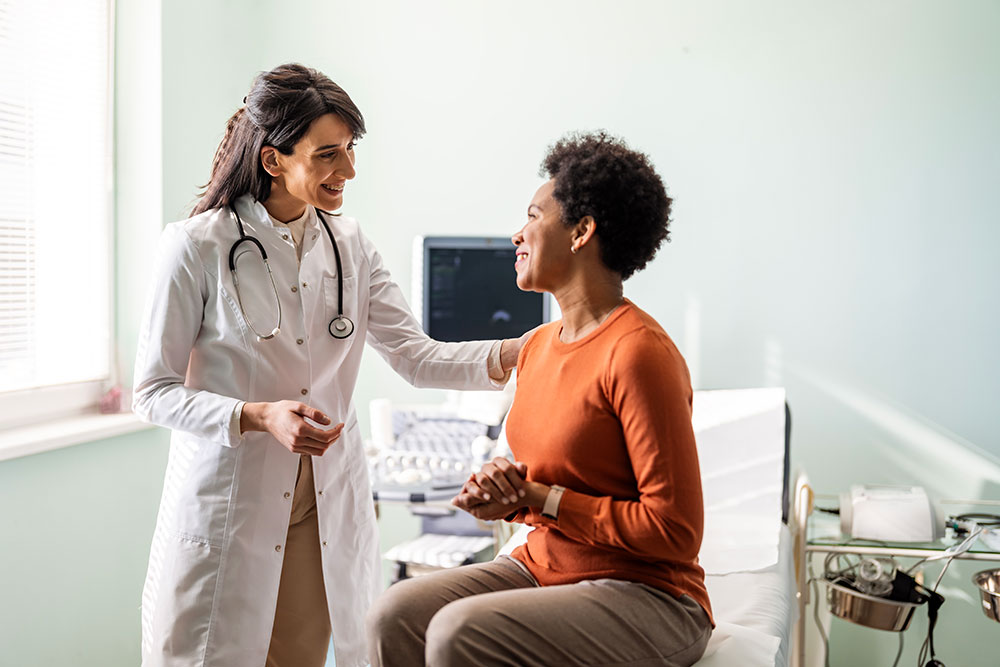
Annual wellness visits are an important and easy way to keep your health on track. For anyone born with a female reproductive system, annual wellness visits are an important part of taking care of yourself. These exams can be part of your visit with your primary care provider or with a women’s health specialist (an OB GYN or Midwife).
What happens during a wellness visit will change over time, but you it’s a good idea to make reproductive health part of your annual care by the age of 13. “Many people think that they need to be sexually active or planning a family to talk about reproductive health, but that’s not the case. Your reproductive system can affect how you feel and your overall health regardless,” says Kristin Hartt, MD, of Northern Light Primary Care.
What to Expect
Putting off an annual wellness visit because you’re not sure what to expect? We get it! The unknown can be scary. What happens during a wellness visit will change over time, based on your personal health needs, but here are the basics:
- Like other check-ups, your blood pressure, pulse, and weight will be checked to ensure there haven’t been any sudden or concerning changes.
- Your provider will talk with you about how you’re feeling, ask about your period, and (if you’re sexually active, or thinking about becoming sexually active) may offer information about family planning, birth control, and STD prevention and testing. They will also discuss a healthy lifestyle and ways to keep active and healthy at any age.
- If you're comfortable, you may have physical exams specific to female health. They may include a pelvic exam (which often includes a pap smear) and a clinical breast exam. These exams are not always needed at every visit and your provider will talk with you about each of them, their purpose, and what will happen during the exam. You will decide together which of those exams you will have at each visit.
Having a well-woman visit can be scary - if you don’t know what to expect. Ask as many questions as you need to. “It may help to write your questions down and bring them with you,” Dr. Hartt suggests. “We want you to be informed, prepared, and comfortable. If you are nervous, please know that we want to work with you and will give you the information you need to make good decisions about your health.” You can even send questions ahead of your appointment using the patient portal, so your provider knows what you’d like to talk about before you arrive. The most important thing is that you get the answers and the care that you need.
Connect with a women's health provider